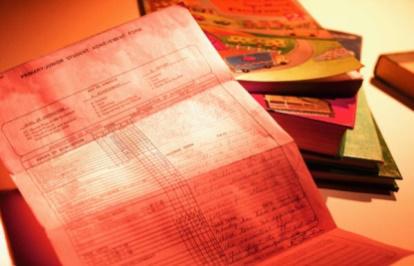
Information and perspectives to promote expansion of the existing body of knowledge in assessment by making connections between research and policy, theory and practice, for educators, officials, and the public.
- Foundations of Assessment
- Formative and Classroom Assessment
- 21st Century Assessment
- Assessment Systems, Accountability, and Leadership
- Standardized Testing
Foundations of Assessment
Assessing For Success
David Rawson
“Assessment has become a perfect storm — so much so that it’s easy to lose sight of why we do it in the first place. To this, Australian researcher Geoff Masters offers helpful clarity: “The fundamental purpose of assessment in education is to establish and understand where learners are in an aspect of their learning at the time of assessment.” Simply put, we should assess to understand.”
Assessment to Support Deeper Learning
James Conley and Linda Darling-Hammond
Recommends a system of assessment that supports standards while also measuring critical thinking, problem solving, collaborating, and creating. They encourage multiple measures and data sources that demonstrate growth, and inform improvement.
Fundamental Assessment Principles for Teachers and School Administrators
James H. McMillan
This article gets right to the heart of good assessment practices. Key ideas include using measurement and evaluation to inform assessment, incorporating multiple methods that support learning, and ensuring technical quality (valid, fair, ethical, and reliable).
Linking Classroom Assessment with Student Learning
ETS
Formal and informal classroom assessment is a critical factor in planning instruction and monitoring learning. This report provides advice for developing quality assessments that are accurate and relevant. Information on constructing assessments and analyzing results is also included.
Nine Principles of Good Practice
A summary of universal practices that apply to all types of assessments, settings, and methods. Key ideas include: Begin with educational values, rely on clear and explicitly stated learning intentions, and best assessment is ongoing and embedded in learning.
Glossary of Education Reform
Describes resources and practices that improve all facets of education from teaching, learning and assessing to leadership and equity.
Five Assessment Myths and Their Consequences
Rick Stiggins
A little older but still relevant views on assessment. “America has spent 60 years building layer upon layer of district, state, national, and international assessments at immense costs- and with little evidence that our assessment practices have improved learning. True, testing data have revealed assessment problems. But revealing problems and helping fix them are two entirely different things.”
Formative and Classroom Assessment
Assessment for Learning: 10 Principles
This clear graphic from the Assessment Reform Group summarizes enduring research-based practices to use in the classroom.
Inside the Black Box: Raising Standards Through Classroom Assessment
Paul Black and Dylan Wiliam in Phi Delta Kappan
This meta-analysis of over 250 studies led the authors to conclude that formative assessment can raise student achievement. Includes a summary of high-yield practice in formative assessment.
Using Formative Assessment to Individualize Instruction and Promote Learning
Juliann Kaftan, Gayle Buck & Alysa Haack
An action research study on sixth grade science teacher’s use of formative assessment showed that it supports good instruction and served as a tool to recognize and respond to student learning.
Every Day in Every Classroom
Laura Greenstein
Every teacher can incorporate formative assessment in daily classroom practice. Here are several feasible ways to embed it in teaching and learning.
Seven Keys to Effective Feedback
Grant Wiggins, Educational Leadership
Feedback is one of the most powerful influences on student achievement, but only when done right. Wiggins explains the essentials of best practice in feedback including goal-referenced, understandable, actionable, timely, and ongoing.
Differentiated Assessment
ASCD Express
Reeves identifies the three essentials to student motivation and engagement as choice, power, and competence. He gives examples of choice in assessment by allowing students to select which 10 homework questions to answer, selecting alternative ways to complete projects, and providing multiple paths to earning a grade.
Formative Assessment and Standards: Blending the Best in Assessment
Laura Greenstein
The Common Core State Standards require educators to thoughtfully scrutinize the standards and then design instruction that strengthens learning outcomes for all students. Formative assessment is one of the best tools for this purpose.
Games for Formative Assessment
Video from Edutopia:
Ideas for using classroom games for assessing student learning.
Resources from NWEA: An extensive list of tools and apps
21st Century Assessment
Assessing 21st Century Skills: Integrating Research Findings
National Council on Measurement in Education
The authors seek to define 21st century skills and summarize the research on measuring these skills. They also make recommendations for best practice.
Measuring 21st Century Competencies
Asia Society
Based on the belief that 21st century competencies means different things in different settings, this reports offers a comprehensive review of numerous 21st century skills and considers the challenges of assessing these outcomes.
Measuring Skills for the 21st Century
Elena Silva
A broad view of 21st century teaching, learning, and assessing that incorporates the ideas of the New Commission on the Skills of the American Workforce, EnGauge, TIMSS, PISA, and the Partnership for 21st Century Skills.
Assessing Deeper Learning
Deeper Learning Student Assessment Initiative (DLSAI) Getting Smart, Asia Society, and New Tech Network
Substantiates the need for better performance assessments and the development of more powerful widespread tools to support project-based learning.
Assessment Systems, Accountability and Leadership
A New Era for Educational Assessment
David Conley
It is time to change our overreliance on standardized tests and replace them with a system of multiple measures that assess a wider range of competencies
College and Career Readiness: Closing the Expectations Gap
Achieve: National Education Summit on High Schools
5th Annual Progress Report on the alignment of high school policies and practices with the demands of college and careers. It includes a state-by-state analysis of expectations and readiness.
Performance Counts: Assessment Systems that Support High Quality Learning
Linda Darling-Hammond
This paper describes what a student assessment system could look like if built from the principles and best practices found in current educational research and effective educational systems in the U.S. and around the world.
Assessment in Schools: Fit for Purpose
Mary James
Best practice in the design of an assessment system means considering the purpose and use of the assessment. It must also and insuring accountability that informs judgments and decisions throughout the system
Transforming K-12 Assessment: Integrating Accountability, Testing, Formative Assessment, and Professional Support
Randy Bennett and Drew Gitomer
This paper from ETS presents a brief overview of the status of K-12 accountability testing in the United States. Problems with the current system are identified. Recommendations are made for a new national assessment model.
High Impact Leadership
John Hattie
Identifies the components of high impact leadership, describes mind frames, and explains best practices in guiding and supporting school success
Standardized Testing
Evaluating Next Generation Assessments
Nancy Doorey and Morgan Pollikof and at the Fordham Institute
A close look at the depth and breadth of multiple assessments including ACT, SAT, MCAS, and more, The researchers report and their alignment with quality indicators of standardized tests.
Incentives and Test-Based Accountability in Education
Michael Hout and Stuart Elliott, National Academies Press
This report includes a synthesis of research from psychology, economics, and education on how incentives have both positive and negative effects. Consideration in designing effective incentive systems and evaluating their success are considered.
Tests and the Teacher
RAND Education
Achievement tests tell us about teaching of reading and math, but not other subjects or other important skills. Teachers contribute to growth in learning but cannot control factors beyond their classrooms. Thus, it is important to look beyond test scores to evaluate a teacher’s full contribution.



